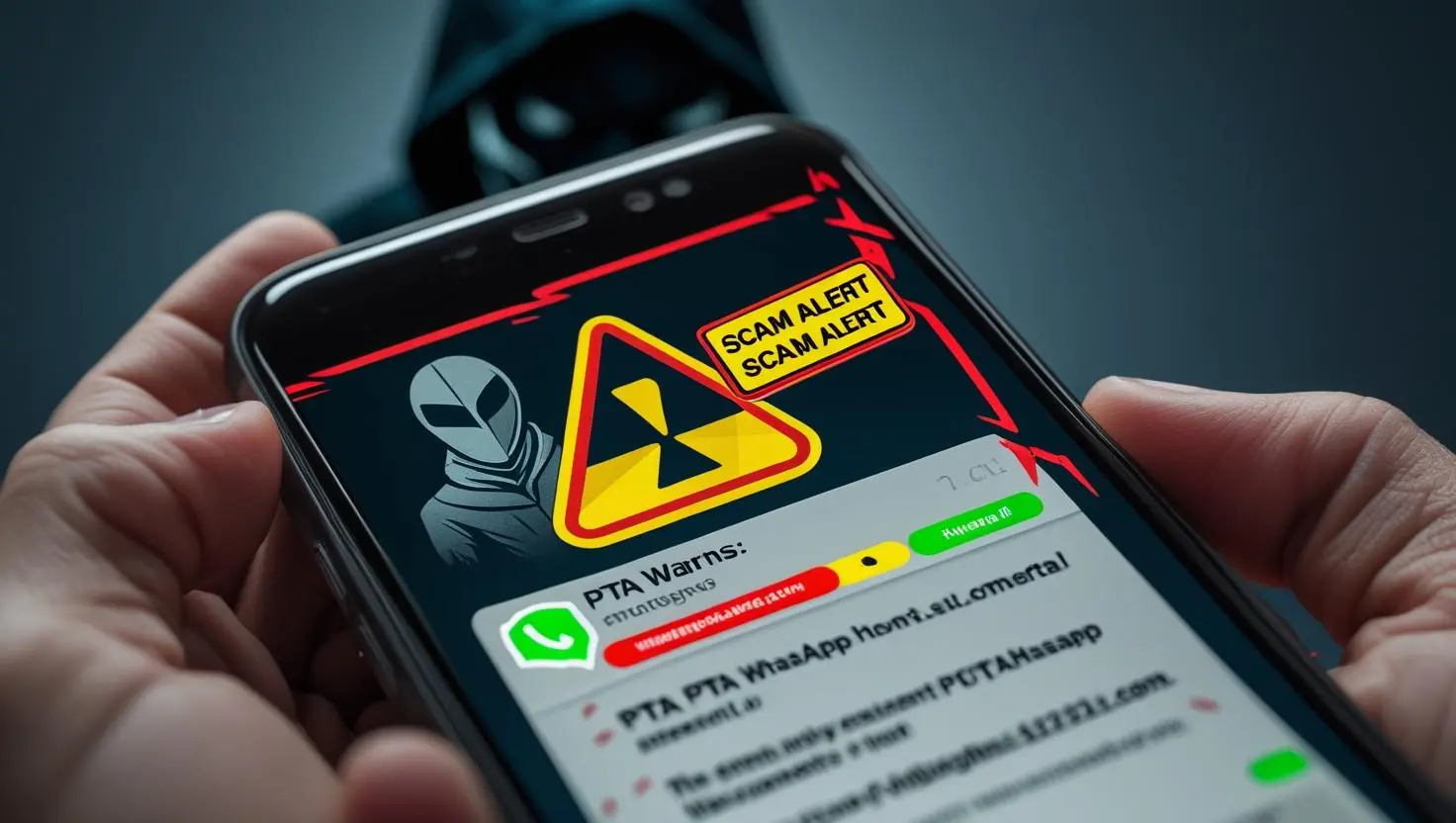WhatsApp Scam Messages: PTA Issues Urgent Warning on Fake Messages & Data Theft
WhatsApp scam messages are on the rise, and the Pakistan Telecommunication Authority (PTA) has now issued a serious cybersecurity advisory. Hackers are sending fraudulent messages impersonating official accounts, tricking users into clicking malicious links. These deceptive messages aim to steal private data, gain access to your WhatsApp account, and even compromise your device. With phishing tactics becoming more convincing, it’s crucial to learn how to recognize these threats, secure your app, and avoid becoming a victim of data theft or account hijacking.
WhatsApp Scam Messages

What Are WhatsApp Scam Messages?
Scam messages on WhatsApp are fraudulent attempts often disguised as official communication from banks, telecom authorities, or tech companies. Hackers send messages with phishing links asking you to verify your account or claim a reward. Once clicked, the link can lead to complete account compromise or even steal your contacts and files.
PTA’s Official Warning and Its Importance
PTA has warned the public against such scams, highlighting how these messages are not from verified sources. The advisory emphasizes reporting such malicious URLs, avoiding interaction with impersonated profiles, and using two-step verification to safeguard your account.
Common Tricks Hackers Use in WhatsApp Scam Messages
Fake “account suspension” or “account verification” notices
Messages pretending to be from PTA, WhatsApp support, or government offices
Links offering prize money or exclusive updates
Use of WhatsApp branding to gain trust
How to Protect Yourself from WhatsApp Phishing Attacks
Never click on unknown links in messages
Enable two-step verification in your WhatsApp settings
Always check the sender’s number or identity
Block and report suspicious messages immediately
Keep your WhatsApp and phone software updated
How Hackers Steal Your Private Data Through WhatsApp
Once you click a fake link, it may redirect to a malicious site that collects:
Your details
WhatsApp backups
Stored photos and files
Login information for other connected apps
Benefits and Important Points for Users to Know:
Recognizing fraud: Being aware helps prevent identity theft and financial loss.
Account safety: Two-step verification adds a strong extra layer of protection.
Device security: Avoiding malicious links keeps your entire phone safe.
Voice search-ready awareness: You can ask your phone:
“How do I check if a WhatsApp message is fake?”
“What is the PTA warning about WhatsApp messages?”
“How can I protect my WhatsApp account from hackers?”
🧾 Stay updated: Always trust official communication and follow the PTA’s latest advisories.
FAQs
Q1: What are WhatsApp scam messages?
These are fake messages sent by hackers that appear to be from official sources and are designed to steal personal information.
Q2: How can I identify a WhatsApp phishing message?
Check for grammar errors, unknown links, and messages claiming urgent action. Official organizations don’t ask for personal info through WhatsApp.
Q3: What should I do if I receive a suspicious message?
Do not click on any links. Report the sender through WhatsApp and block the contact.
Q4: Is the PTA warning genuine?
Yes, the PTA has officially issued this warning through reliable news outlets like ProPakistani and PhoneWorld.
Q5: How can I secure my WhatsApp account?
Enable two-step verification, never share verification codes, and keep your app updated.
